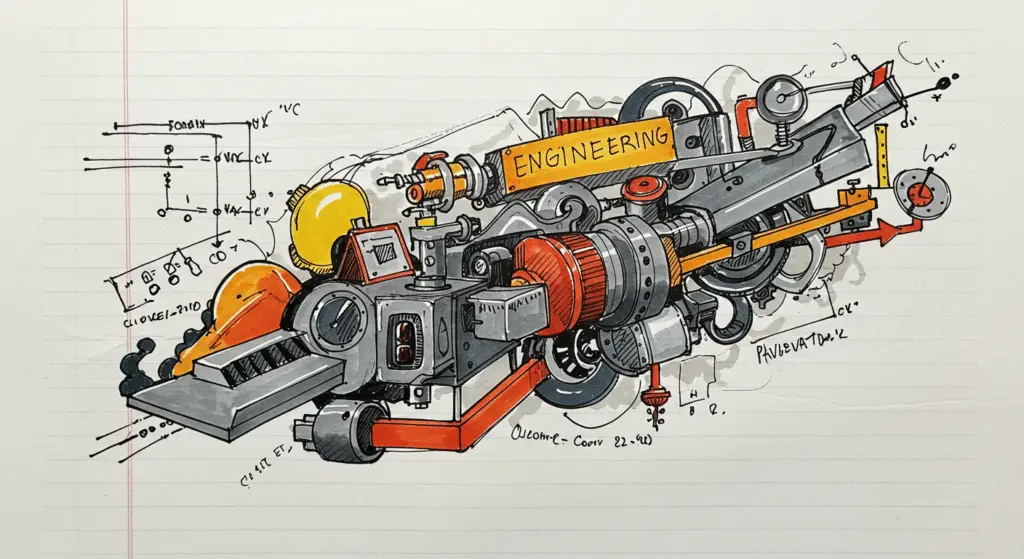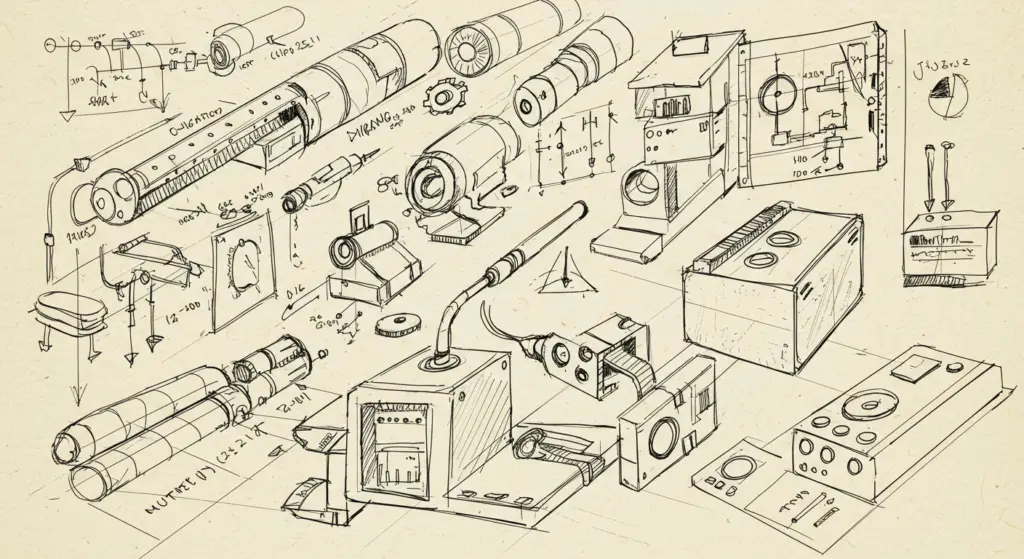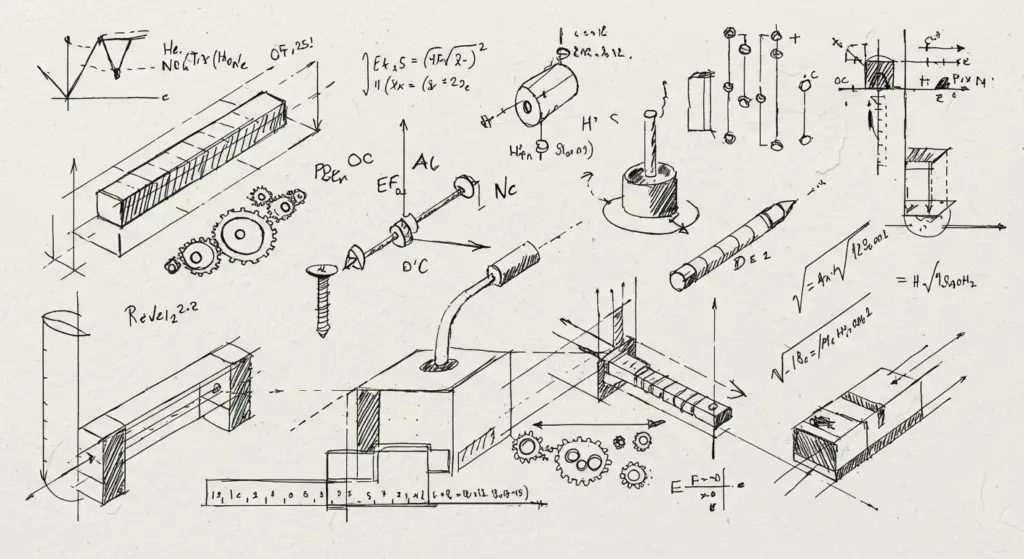The Best Type of Engineering

Type of Engineering
In the dynamic and constantly evolving world of engineering, the question of which discipline or specialization is the “best” is a complex and multifaceted one. Each type of engineering offers its own unique set of challenges, opportunities, and rewards, catering to a diverse array of interests, skills, and career aspirations. Attempting to definitively declare a single “best” engineering field would be a futile exercise, as the “best” type of engineering is often highly dependent on the individual’s personal preferences, goals, and the specific demands of the job market.

However, in this comprehensive article, we will explore the key factors and considerations that can help aspiring engineers navigate the complex landscape of engineering disciplines and determine the path that aligns most closely with their unique strengths, passions, and career objectives. By delving into the defining characteristics, job prospects, and emerging trends of the various engineering sectors, readers will gain a deeper understanding of the diverse options available to them and the strategies they can employ to identify the “best” type of engineering for their individual needs and aspirations.

Understanding the Diverse Engineering Landscape
Before embarking on the journey to determine the “best” type of engineering, it is crucial to first develop a comprehensive understanding of the broad and multifaceted landscape of the engineering profession. From the foundational disciplines of civil, mechanical, and electrical engineering to the emerging fields of biomedical, sustainability, and computer engineering, the engineering world encompasses a wide range of specialized domains, each one addressing a unique set of challenges and contributing to the advancement of specific industries or technologies.
Recognizing the unique strengths, applications, and future prospects of these diverse engineering sectors is essential for aspiring professionals as they seek to align their skills, interests, and career goals with the most suitable path. By exploring the core responsibilities, in-demand skills, and industry trends associated with each type of engineering, individuals can gain valuable insights that will inform their decision-making process and help them identify the field that offers the greatest potential for personal and professional fulfillment.

Factors to Consider When Determining the “Best” Type of Engineering
With a deeper understanding of the engineering landscape, the next step in the process of identifying the “best” type of engineering is to carefully evaluate a range of key factors that can influence an individual’s suitability and long-term success within a particular discipline. These factors include, but are not limited to:
- Personal Interests and Strengths:
- The “best” type of engineering is often the one that aligns most closely with an individual’s natural interests, aptitudes, and problem-solving preferences. By carefully assessing their own inclinations, skills, and passions, aspiring engineers can gain valuable insights into the engineering fields that are most likely to provide them with a sense of fulfillment and professional satisfaction.
- Job Prospects and Earning Potential:
- The future job outlook and earning potential associated with a particular engineering discipline can also be a significant factor in determining the “best” path forward. Aspiring engineers should research the projected demand for various engineering specialties, as well as the typical salary ranges and career advancement opportunities, to ensure their chosen field offers the financial stability and growth potential they desire.
- Emerging Trends and Societal Needs:
- As the world grapples with complex, global challenges, such as climate change, resource scarcity, and technological disruption, the engineering fields that address these pressing issues may offer the greatest opportunities for impact and long-term relevance. By aligning their aspirations with the emerging trends and evolving societal needs, aspiring engineers can position themselves at the forefront of progress and innovation.
- Educational and Training Requirements:
- The level of educational and training requirements associated with a particular engineering discipline can also be a significant factor in an individual’s decision-making process. Aspiring engineers should carefully evaluate the academic and professional development pathways necessary to thrive in their chosen field, ensuring they have the time, resources, and commitment to meet the necessary qualifications.
- Work Environment and Lifestyle Preferences:
- The specific work environment and lifestyle associated with a particular engineering field can also play a crucial role in determining the “best” fit for an individual. Factors such as the balance between office-based and field work, the level of collaboration required, and the overall work-life balance can all contribute to an individual’s satisfaction and long-term success within a given engineering discipline.
By carefully evaluating these key factors, aspiring engineers can gain a deeper understanding of their own strengths, interests, and career aspirations, and identify the engineering field that offers the greatest potential for personal and professional fulfillment.
Emerging Trends and the Future of Engineering
As the world continues to evolve and new challenges emerge, the engineering landscape is also undergoing a dynamic transformation, with the emergence of innovative disciplines and the increasing importance of specialized expertise. Understanding these emerging trends and the future direction of the engineering profession can be a valuable asset for aspiring professionals as they seek to determine the “best” type of engineering for their long-term career goals.
Some of the key emerging trends and areas of growing importance within the engineering field include:
- Sustainability and Environmental Engineering:
- With the pressing need to address climate change, resource scarcity, and environmental degradation, the demand for engineers who can develop innovative solutions for renewable energy, waste management, and ecosystem conservation is expected to surge in the coming years.
- Biomedical and Healthcare Engineering:
- As advancements in medical technology and the growing healthcare needs of an aging global population continue to transform the industry, the demand for skilled biomedical and healthcare engineers will continue to rise, driving progress in areas such as personalized medicine, assistive devices, and healthcare system optimization.
- Automation and Robotics Engineering:
- The rapid advancement of autonomous systems, artificial intelligence, and robotics is revolutionizing a wide range of industries, creating a growing need for engineers who can design, develop, and integrate these transformative technologies.
- Data and Computer Engineering:
- The exponential growth of data and the increasing reliance on digital infrastructure have made data and computer engineers essential in unlocking the power of information and driving innovation across various sectors.
By staying informed about these emerging trends and the evolving needs of the job market, aspiring engineers can make more informed decisions about the “best” type of engineering to pursue, ensuring their skills and expertise remain relevant and in high demand in the years and decades to come.
Embracing the Diversity of Engineering
Ultimately, the concept of the “best” type of engineering is a highly subjective and personal one, as it depends on the unique aspirations, strengths, and circumstances of each individual. Rather than seeking a one-size-fits-all solution, aspiring engineers should embrace the diversity of the engineering landscape and approach the decision-making process with an open and adaptable mindset.
By carefully considering their personal interests, career goals, and the evolving needs of the industry, aspiring engineers can identify the engineering field that offers the greatest potential for long-term fulfillment and impact. Moreover, the interdisciplinary nature of modern engineering challenges often requires professionals to possess a diverse array of skills and expertise, making it increasingly valuable for engineers to explore multiple disciplines and develop a well-rounded skillset.
As the world continues to grapple with complex, multifaceted challenges, the need for skilled, adaptable, and innovative engineers will only continue to grow. By embracing the diversity of the engineering landscape and thoughtfully determining the “best” path forward, aspiring professionals can position themselves at the forefront of progress, making a meaningful contribution to the betterment of society and unlocking new frontiers of innovation.
Conclusion
In the dynamic and ever-evolving world of engineering, the concept of the “best” type of engineering is a complex and highly personal one, driven by an individual’s unique interests, strengths, and career aspirations. Rather than seeking a single, definitive answer, aspiring engineers should approach the decision-making process with a nuanced and adaptable mindset, carefully evaluating the diverse range of factors that can influence their long-term success and fulfillment within a particular engineering discipline.
By developing a comprehensive understanding of the engineering landscape, assessing their personal preferences and talents, and staying attuned to the emerging trends and evolving societal needs, aspiring professionals can navigate the complex world of engineering and identify the path that offers the greatest potential for personal and professional growth. Whether they choose to pursue a career in the foundational disciplines of civil, mechanical, or electrical engineering, or explore the exciting frontiers of sustainability, biomedical, or computer engineering, the key to success lies in embracing the diversity of the engineering profession and aligning their aspirations with the dynamic and ever-changing demands of the industry.
As the world continues to face daunting challenges and unprecedented opportunities, the role of engineers in driving progress and innovation will only become more crucial. By determining the “best” type of engineering and dedicating themselves to the pursuit of excellence, aspiring professionals can unlock new frontiers of discovery, make a lasting impact on their communities, and contribute to the betterment of the world around them.
- https://worldcivilsociety.com/how-many-sectors-are-there-in-engineering/
- https://worldcivilsociety.com/which-engineer-will-be-in-demand-in-2030/
- https://worldcivilsociety.com/what-are-the-big-5-types-of-engineering/

Pingback: Which field is best in civil engineering?